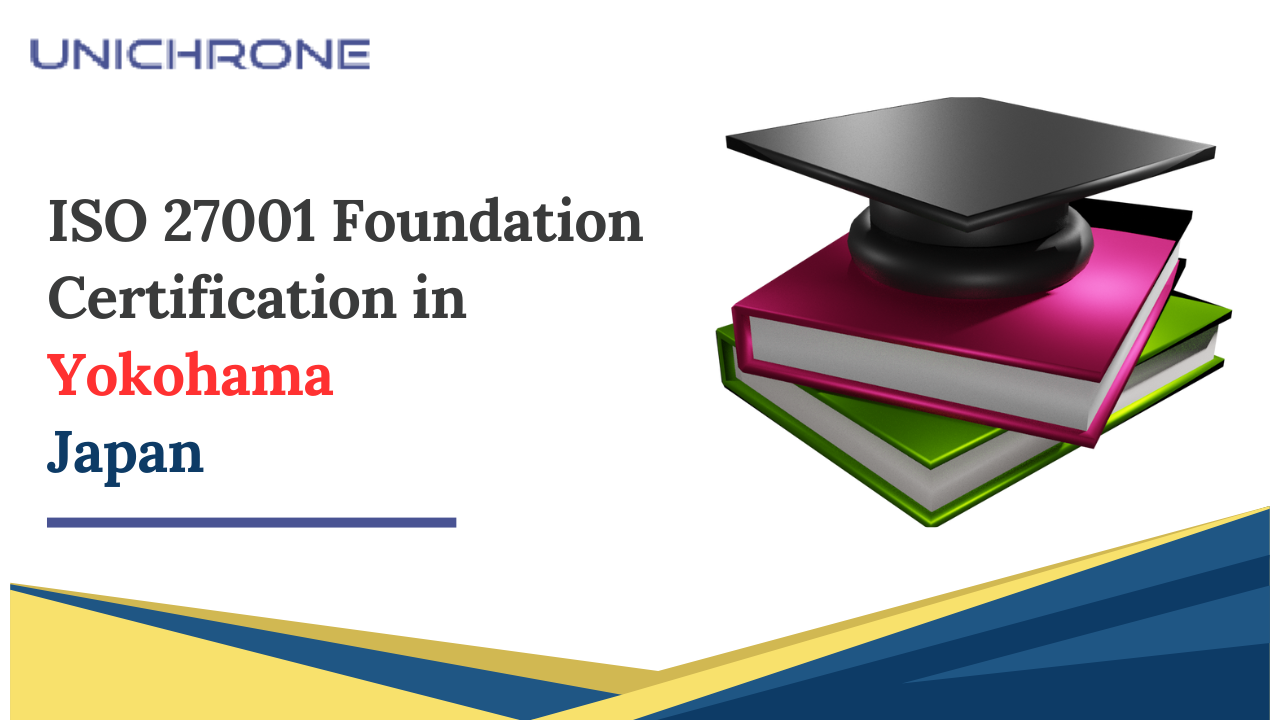In the rapidly evolving digital landscape, ensuring robust information security is paramount for organizations to protect their sensitive data and maintain the trust of their stakeholders. To achieve this, many companies in Yokohama, Japan, are turning to ISO 27001 Lead Auditor Certification Training. This training program empowers professionals to become certified lead auditors, capable of commanding their employers to upgrade to the latest ISO 27001:2022 version from ISO 27001:2013, and finding scope for improvement in their Information Security Management Systems (ISMS). Audit sessions, conducted by certified lead auditors, play a pivotal role in detecting system flaws and ensuring compliance with the revised ISO standard. Organizations hiring certified lead auditors not only comply with the standard but also initiate essential information security improvements, thereby safeguarding their assets and reputation.
Chapter 1: The Significance of ISO 27001 Lead Auditor Certification
- Understanding ISO Certification cost in Yokohama Japan and the benefits of this accreditation
- The role of certified lead auditors in promoting ISO 27001:2022 adoption
- How certified lead auditors contribute to information security enhancement
- The value organizations derive from hiring certified lead auditors
Chapter 2: Responsibilities of Lead Auditors in ISMS Improvement
- Exploring the crucial role of lead auditors in identifying scope for ISMS enhancement
- The process of conducting audit sessions to detect system flaws and vulnerabilities
- How certified lead auditors scrutinize security controls as per the revised ISO standard
- Initiating information security improvements with lead auditors’ guidance
Chapter 3: Instilling a Safe ISMS through ISO 27001 Lead Auditor Certification
- Empowering individuals with ISO 27001 Lead Auditor Exam clearance to implement ISMS effectively
- Insights into the management of corrective actions and continual improvement
- Defining objectives to cater to organizational cybersecurity requirements
- Developing a culture of information security through certified lead auditors’ expertise
Chapter 4: Proficiency in Risk Assessment and Performance Evaluation
- The significance of risk assessment skills gained through Lead Auditor Course in Yokohama Japan
- Leveraging risk analysis for ISMS performance evaluation and improvement
- Supervision and measurement techniques to maintain a resilient ISMS
- Key takeaways for professionals seeking to enhance their risk assessment proficiency
Chapter 5: Choosing the Right Training Approach for ISO 27001 Lead Auditor Certification
- Comparing online instructor-led sessions and in-classroom training options
- Benefits and flexibility of online training for busy professionals
- The advantages of in-classroom learning in a collaborative environment
- Steps to clear the exam and earn the coveted ISO 27001 Lead Auditor Certification
Chapter 6: Top 10 Must-Have ISMS Policies for Information Security
- Access Control Policy: Safeguarding data from unauthorized access
- Information Classification and Handling Policy: Ensuring proper data categorization and protection
- Incident Response and Management Policy: Strategies to mitigate and handle security incidents
- Security Awareness and Training Policy: Fostering a security-conscious organizational culture
- Risk Management Policy: Comprehensive approach to risk identification and mitigation
- Business Continuity and Disaster Recovery Policy: Ensuring continuity in the face of disruptions
- Network Security Policy: Strengthening protection against external threats
- Physical Security Policy: Securing premises and assets from physical breaches
- Vendor Management Policy: Ensuring third-party compliance with security standards
- Compliance and Legal Policy: Adhering to industry regulations and legal requirements
Conclusion: In conclusion, ISO 27001 Lead Auditor Certification Training in Yokohama Japan equips professionals with the knowledge and skills to drive comprehensive information security within their organizations. Certified lead auditors not only ensure compliance with the latest ISO 27001:2022 version but also play a crucial role in detecting system flaws and initiating necessary security improvements. By defining and implementing the top 10 must-have ISMS policies, organizations can establish a robust foundation for information security and protect their sensitive data from potential threats in the dynamic digital landscape.



